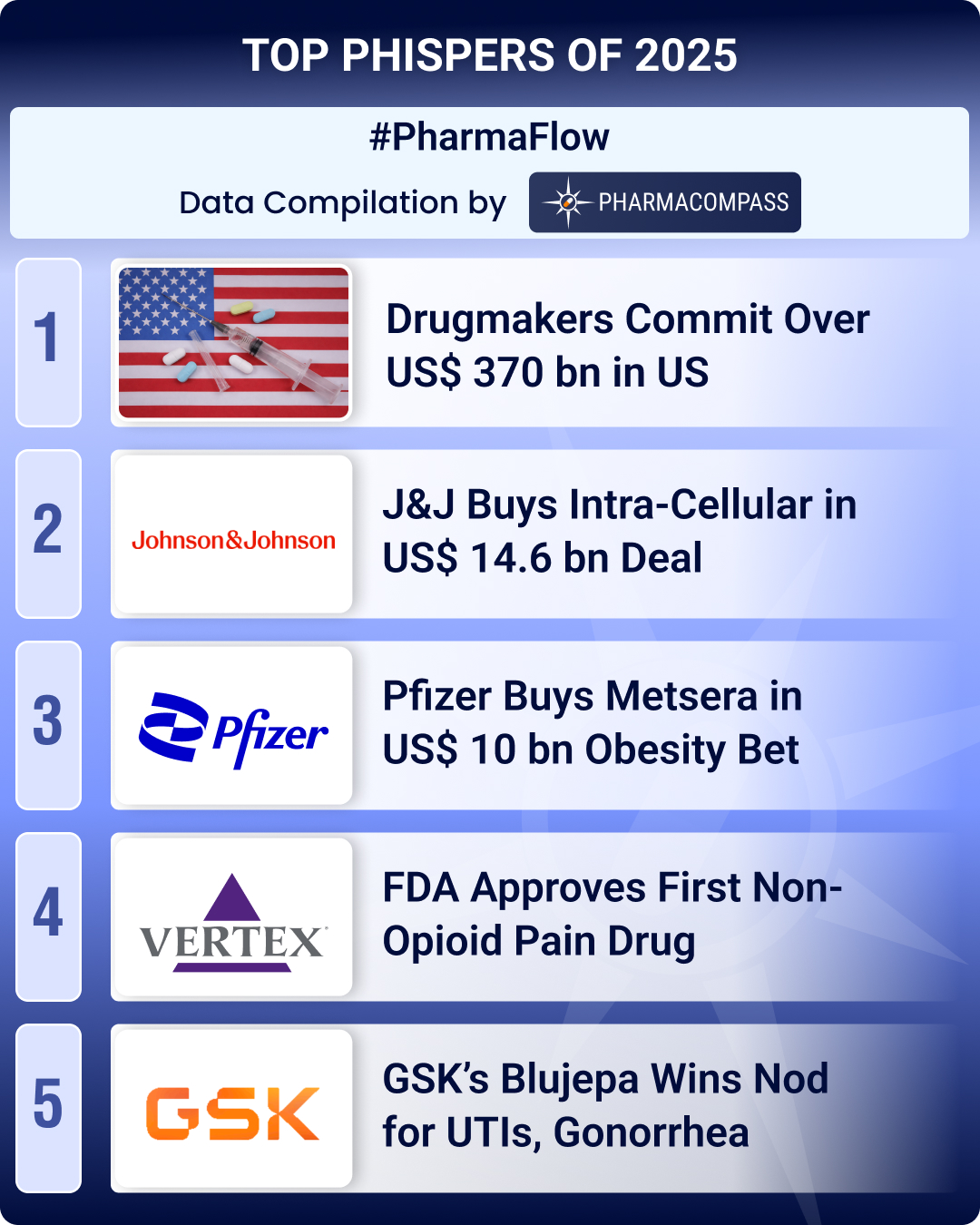
The Generic Drug User Fee Amendments (GDUFA) law was introduced in 2012 to speed up access to safe and effective generic drugs. The law mandated the industry to pay user fees to supplement the costs of reviewing generic drug applications and inspecting facilities.
The deadline to pay the GDUFA dues to the US Food and Drug Administration (FDA) for the financial year 2017 expired in October.
As the cost of compliance and the cost of doing business continues to rise for pharma companies, our analysis this week compares the facilities which ‘self-identified’ in FY 2017 with those in the previous year.
This year also marked the end of GDUFA I and the launch of GDUFA II. While
announcing GDUFA II, the FDA said that program size will increase from US $ 323 million in FY 2017 to US $ 493.6 million in FY 2018, an increase of more than 50 percent.
GDUFA fee likely to increase in coming years
The fee in FY 2017, unlike in some other countries, is not insignificant (see the table below) and will most likely increase significantly in the coming years.
|
GDUFA fee for FY 2017 |
GDUFA fee for FY 2016 |
||
|
Facility |
Domestic API |
US $ 44,234 |
US $ 40,867 |
|
Foreign API |
US $ 59,234 |
US $ 55,867 |
|
|
Domestic FDF |
US $ 258,646 |
US $ 243,905 |
|
|
Foreign FDF |
US $ 273,646 |
US $ 258,905 |
India has highest number of API facilities
The US leads with most facilities registered (table below) and also the most facilities (284) which produce finished dosage forms (FDFs).
At 236, India has the highest number of API facilities. And, this number builds on our take last week that robust API filings are occurring out of India.
China follows India with 167 facilities that make APIs. India
still continues to lead China substantially when it comes to FDF facilities
where India has 153 while China has 50.
US leads in clinical bioequivalence facilities
Clinical Bioequivalence is a US-dominated area — almost 75 percent of the 638 facilities registered are in the United States. India follows with 105 and China has only four — indicating that clinical bioequivalence centers in China are yet to develop.
The production of the drug used for positron emission tomography (PET) — a test that uses a special camera and a tracer (radioactive chemical) to investigate organs in the body — is only being undertaken in North America (119 facilities in the US and two in Canada).
|
S.NO. |
COUNTRY |
API |
FDF |
CLINICAL BE OR BA STUDY |
IN VITRO BE OR BA TESTING |
PACK |
PET DRUG PRODUCTION |
REPACK |
TOTAL |
|
1 |
United States |
116 |
284 |
461 |
90 |
188 |
119 |
77 |
1697 |
|
2 |
India |
236 |
153 |
105 |
46 |
114 |
17 |
901 |
|
|
3 |
China |
167 |
50 |
4 |
1 |
31 |
3 |
330 |
|
|
4 |
Germany |
36 |
26 |
8 |
15 |
3 |
152 |
||
|
5 |
Canada |
16 |
30 |
12 |
14 |
19 |
2 |
4 |
143 |
|
6 |
Italy |
67 |
22 |
2 |
6 |
1 |
135 |
||
|
7 |
Spain |
31 |
18 |
2 |
2 |
5 |
1 |
84 |
|
|
8 |
France |
23 |
12 |
3 |
6 |
5 |
1 |
71 |
|
|
9 |
United Kingdom |
14 |
6 |
6 |
1 |
6 |
1 |
63 |
|
|
10 |
Taiwan |
15 |
15 |
3 |
1 |
8 |
1 |
57 |
The change from FY 2016
Interestingly, 59 API and 49 FDF facilities, which registered in 2016, have not re-registered in 2017. However 48 new API manufacturing facilities have registered along with 42 that manufacture finished formulations.
The difference was far more dramatic for centers that conduct clinical bioequivalence or bioavailability studies since 249 facilities that were listed in the FY 2016 list were not found in FY 2017. However, 126 new centers were added to the FY 2017 list.
The data for FY 2017 also demonstrates that many companies that traditionally made APIs — like Gadea (recently acquired by AMRI), Concord Biotech and Biovectra — are migrating towards manufacturing FDFs.
This year, Bangladesh’s Beximco started exporting products to the US. However,
though Beximco
was on the 2016 list, it is not on the 2017 list. Square Pharmaceuticals from Bangladesh, however, is on the list indicating that
Bangladesh is striving to emerge as a manufacturing hub for generic pharmaceutical
drugs.
Impact of non-compliances
Beijing Taiyang Pharmaceutical, which refused an FDA inspection and was placed on the FDA Import Alert list, did not re-register in 2017 — thus indicating that it has no plans of continuing its US business.
However, other companies on the FDA’s import alert list for not conforming with the current good manufacturing practices (cGMP) — Hebei Yuxing, Jinan Jinda, Yunnan Hande, Zhejiang Hisoar, Zhejiang Hisun, Teva Hungary, Srikem Labs (India) and Wockhardt’s bulk drug division — have all registered for the upcoming year, indicating plans to get operations into compliance.
India’s Century Pharmaceuticals, which is on the import alert list for refusing an FDA
inspection, has re-registered.
Our view
Choosing an appropriate business partner is critical in the pharmaceutical business and facilities that register with the FDA pay a lot of money to demonstrate their commitment to the business.
The increases anticipated as part of GDUFA II, coupled with announcements that there will be an additional fee of “US $ 15K for facilities located outside of the US” will make the fee structure drastically different from what we have seen in previous years. This change of fee structure should generate even more changes in the facilities that self-identify and choose to do generic drug business in the United States.
PharmaCompass has prepared a compilation of companies which registered with the FDA in FY 2017 so that more information is available to our readers while selecting the right business partner for the generic drug business in the United States.
The PharmaCompass Newsletter – Sign Up, Stay Ahead
Feedback, help us to improve. Click here
Image Credit : A New Partnership by USFS Region 5 is licensed under CC BY 2.0
“ The article is based on the information available in public and which the author believes to be true. The author is not disseminating any information, which the author believes or knows, is confidential or in conflict with the privacy of any person. The views expressed or information supplied through this article is mere opinion and observation of the author. The author does not intend to defame, insult or, cause loss or damage to anyone, in any manner, through this article.”





